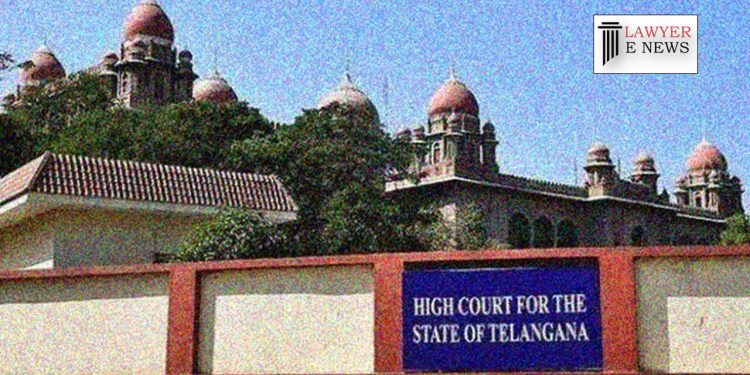-
by sayum
14 February 2026 2:22 PM



In a significant judgment in May 2024, the Telangana High Court upheld the constitutionality of the age and marks criteria prescribed by the Telangana State Judicial Services Rules, 2023, for the recruitment of judicial officers. This decision comes in the wake of challenges against these criteria as being discriminatory and unconstitutional under Articles 14, 16, and 19(1)(g) of the Constitution of India.
The crux of the judgment centers on the validity of setting a maximum age limit of 26 years and a minimum marks criterion of 60% for Open Category (OC) candidates and 55% for reserved categories in judicial service examinations. These provisions were contested for allegedly violating the principles of equality, fairness, and opportunity.
Petitioners in a batch of writ petitions argued that these criteria barred many capable candidates from entering the judiciary, thereby denying them the right to equality and opportunity. Specific challenges were raised against:
The age limit, particularly as it affects older candidates who might have gained relevant experience.
The marks criterion, which was argued to potentially favor candidates from universities with lenient marking schemes.
Court’s Assessment and Rationale
The court noted that similar criteria had been previously upheld in various precedents. It emphasized that “the setting of age and educational thresholds is aimed at ensuring that candidates entering the judiciary possess the requisite preliminary merit and youthfulness needed for the rigors and responsibilities of judicial office.”
The requirement for candidates to be practicing advocates within Telangana and to hold a valid Bar Association Certificate was also upheld. The court cited that these rules serve the administrative goal of ensuring candidates’ familiarity with local laws and proceedings.
The court extensively referred to prior judgments which supported the idea that setting stringent criteria ensures a high standard of judicial appointments. It specifically cited the case of Devanch Kaushik vs. State of Madhya Pradesh and others, aligning with their reasoning that higher benchmarks in recruitment criteria are aligned with the objectives of judicial excellence and efficiency.
Decision The court dismissed all the petitions challenging the Telangana State Judicial Services Rules, 2023, thereby affirming the age and marks criteria along with the procedural prerequisites for judicial appointments in the state.
This judgment reinforces the judiciary’s approach towards maintaining a high standard in judicial appointments through stringent eligibility criteria. It underscores the balance the judiciary seeks to maintain between the need for youthful and meritorious candidates and the principles of equality and non-discrimination.
Date of Decision: 3rd May 2024
Patta Navya Rachel vs. The State of Telangana
